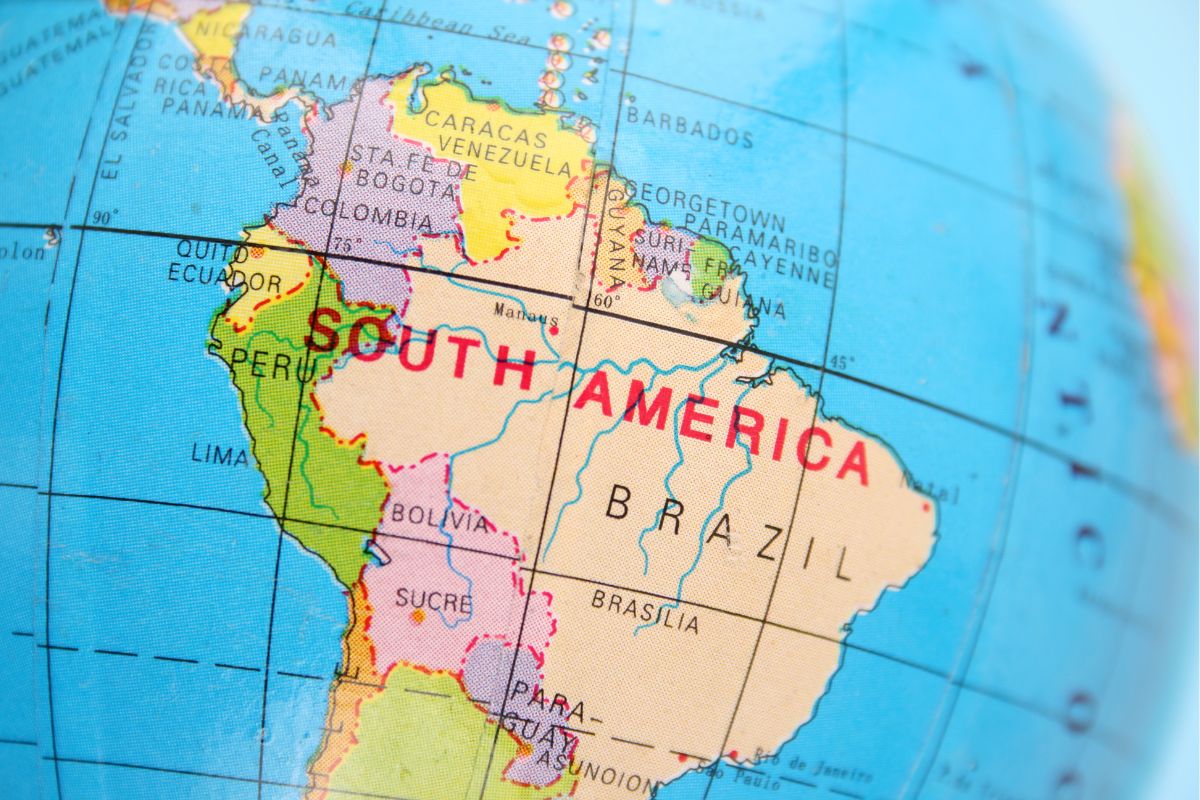The Spotlight Is More Than Ever on Argentina
The government led by Javier Milei heads into the midterm elections this Sunday, October 26, in a completely unprecedented situation: with the United States Treasury committed to providing financial assistance to the country of up to 40 billion dollars, intervening in the foreign exchange market to calm volatility, and promising trade agreements.
The U.S. aid became effective after the ruling party lost by 13 points in the early September elections in the province of Buenos Aires, which accounts for nearly 40% of the national electorate. Therefore, these upcoming national legislative elections will be key for the government, which needs to expand its parliamentary representation and build consensus with the opposition to pass structural reforms.
Funds Society consulted with experts from international asset managers. Most agreed that the U.S. economic rescue is a temporary relief rather than a structural solution and that it is not enough to define a credible medium-term investment framework. They also pointed out that after October 26, the exchange rate should float and that the country should accelerate the pace of reserve accumulation.
WSJ and FT: Critical Editorials
Under the suggestive title “Argentina: Right Country, Wrong Bailout,” the Wall Street Journal stated in an editorial that “dollarization is the right and now essential political alternative” for the South American country, after warning that “this bailout is likely to throw good dollars after bad pesos without monetary reform in Buenos Aires.”
The paper also emphasized that “no one is sure how long this era of reforms will last” and mentioned that Economy Minister Luis Caputo “is opposed, as are some funds that benefit from a currency carry trade that would disappear with dollarization.” The conclusion was damning: “The default remedy is always devaluation” for Argentina.
According to the WSJ, “after the elections, Scott Bessent will waste dollar assets on this bailout if he doesn’t pressure Milei to restore sound money through dollarization.”
The Financial Times also published a harsh editorial, describing the partnership between Bessent and Milei as a “risky venture,” suggesting that the U.S. official “should understand the madness of defending” the current dual-band exchange rate system in Argentina, and stating that the U.S. is “throwing money at a serial defaulter” that even threatens competition with soybean producers.
“If madness is repeating the same action and expecting a different result, then a central pillar of Argentina’s economic policy borders on insanity,” the British newspaper wrote. The South American country needs “less anarchy and more capitalism,” the article concluded, referencing the Argentine president’s self-description as an anarcho-capitalist.
The View of International Asset Managers
On October 9, the U.S. Treasury confirmed direct purchases of Argentine pesos and a 20-billion-dollar swap framework with the Central Bank of Argentina. Interventions in the foreign exchange market continued, and on October 15, Bessent said he was in talks with banks to coordinate a debt facility of 20 billion dollars (in addition to the swap), raising potential support to 40 billion dollars. The institutions involved would be JP Morgan, Bank of America, Goldman Sachs, and Citigroup, according to media reports.
“The size and scope of the U.S. Treasury’s financial assistance program are remarkable, but its legitimacy will depend on Milei maintaining veto power in the upcoming midterm elections,” assessed Jason DeVito, senior portfolio manager of emerging markets debt at Federated Hermes.
According to DeVito, if the result is favorable to the government, “we will see momentum toward further deregulation and additional fiscal discipline.” In that scenario, Federated Hermes expects a move toward a more flexible exchange rate and an improvement in current account indicators.
Carlos Carranza, senior manager of emerging markets debt funds at M&G Investments, pointed out that after the elections, volatility will likely decrease “as the focus returns to fundamentals.”
The expert logically noted that President Milei will remain in office for at least two more years, “regardless of the electoral outcome. Meanwhile, it is worth noting that Argentina’s macroeconomic outlook remains largely constructive.”
On the fiscal front, the government continues to maintain a balanced budget (that is, with no primary fiscal deficit), “which is an uncommon achievement in both emerging and developed markets,” he indicated. Moreover, inflation remains largely anchored and, although monthly figures have persistently hovered around 2–3%, year-on-year measurements still show a slowdown.
Among the fundamentals, Carranza also highlighted that the South American country’s GDP growth “remains on track to register a solid 4.3% in 2025, even despite some downward revisions in recent months.”
Short-Term Support
Meanwhile, Alejo Czerwonko and Pedro Quintanilla-Dieck, from the Chief Investment Office at UBS, emphasized in a special report dedicated to Argentina that the U.S. intervention acts as a short-term “circuit breaker,” by strengthening the Central Bank’s reserves and reducing the risk of uncontrolled inflation.
The report highlights that this maneuver improves the chances of Javier Milei’s government regaining some political capital in the elections, although doubts persist regarding the sustainability of the exchange rate system and the pace of reserve accumulation.
UBS considers the package a temporary relief rather than a structural solution and maintains a neutral view on Argentine bonds, awaiting greater clarity on stabilization policies.
From the asset manager Payden & Rygel, Alexis Roach, emerging markets analyst, stated that “a landslide victory does not seem necessary to guarantee the country’s governability: a balanced outcome, in which the ruling party outperforms the Peronists, would be enough.”
Roach considered that “the financial support from the United States, although significant, is not enough to define a credible medium-term investment framework. After the elections, the market’s attention will focus on the government’s ability to reach agreements with centrist forces to secure a parliamentary majority, as well as on the strategy to regain access to markets.”
The fact is that the Argentine president showed a shift after being defeated in the Buenos Aires provincial elections. In addition to the U.S. economic bailout, he added a more moderate tone to his rhetoric, attempted to begin a dialogue with the more rational opposition, and showed an effort to connect with voters who have been enduring an adjustment that, although it helped reduce inflation, has yet to translate into improvements in the microeconomy.
Household delinquency in the South American country rose for the tenth consecutive month in August, reaching 6.6% of total credit—marking a new record in at least 15 years, according to the Central Bank’s banking report. Meanwhile, interest rates for overdrafts—one of the most common ways for small and medium-sized enterprises to finance working capital—increased from around 80% to 190% nominal annual last week, reaching the highest level in at least 17 years.
On top of all this, the dollar—the eternal social barometer of pre-election Argentina—recorded its biggest daily increase in nearly six weeks on Friday, October 17, while financial dollars (MEP and CCL) surpassed 1,500 pesos, despite the firepower implied by the interventions from the U.S. Treasury.



